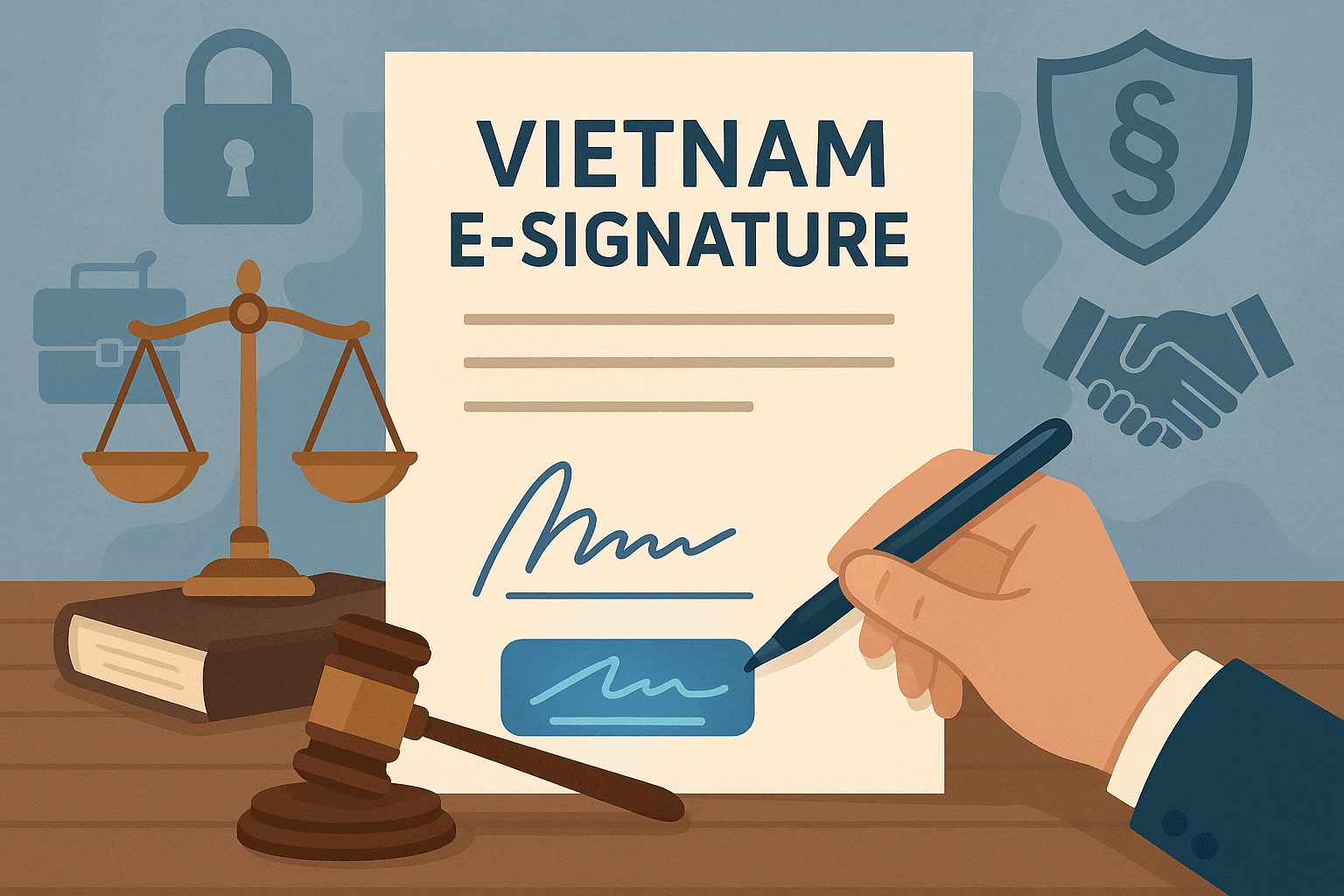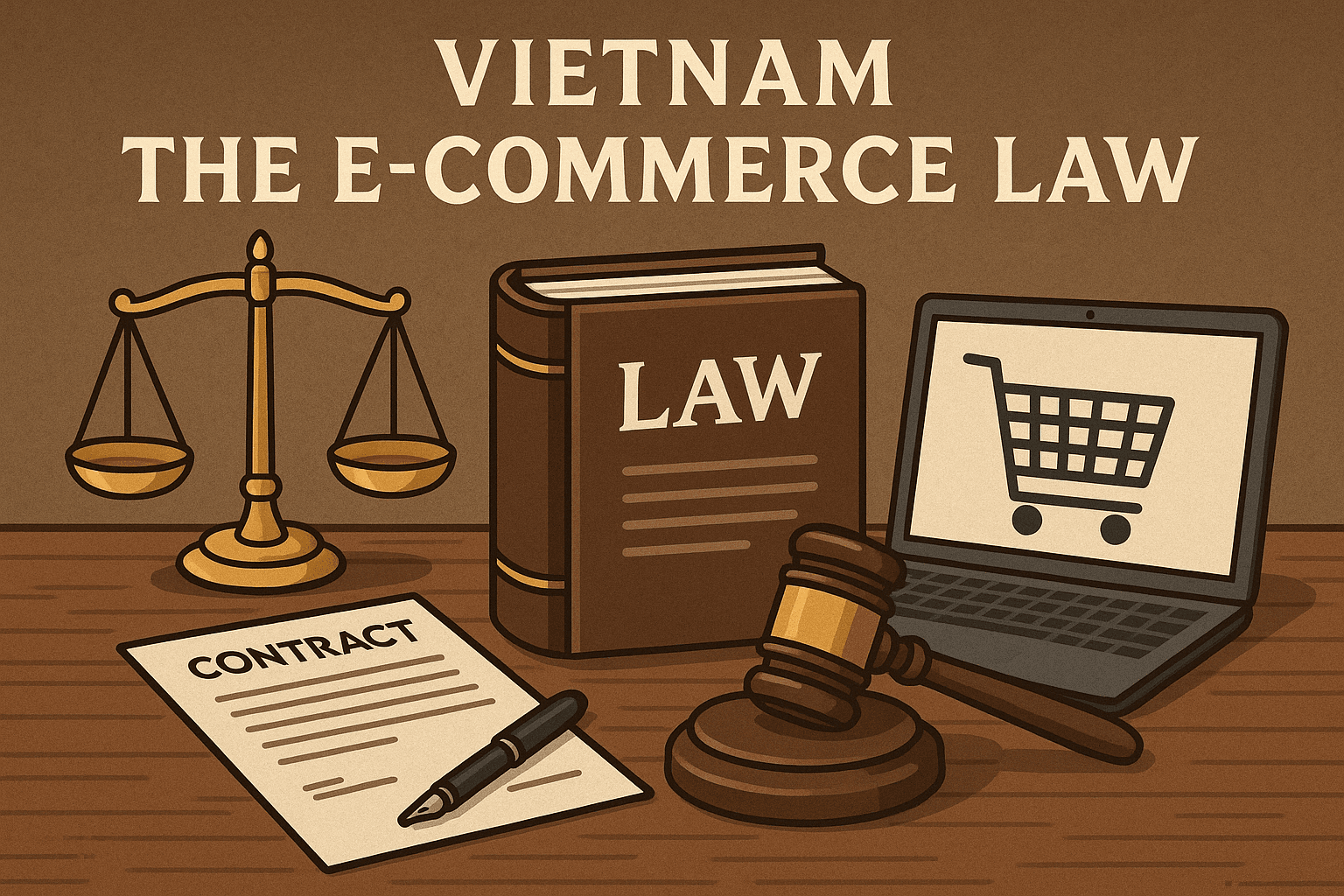WhatsApp or email with our sales team or get in touch with a business development professional in your region.
Top 5 electronic signature providers for Vietnam SMBS in 2025





The accelerating push toward digital transformation across Southeast Asia is reshaping how enterprises handle contractual workflows. As paper-based processes buckle under the weight of remote work demands, regulatory compliance, and operational inefficiencies, businesses—from growing SMEs to sprawling multinationals—are turning to electronic signature (e-signature) solutions as strategic enablers of digital agility. In markets like Vietnam, Thailand, and Indonesia, government mandates and updated legislation are creating a regulatory environment favorable to electronic authentication, yet highly localized technology integration remains critical. As demand rises, understanding the e-signature software landscape—especially vendors aligned with regional regulations—is vital for making informed technology decisions.

Defining Electronic Signatures in Compliance with Local Frameworks
Within legal parameters, an electronic signature refers to data in electronic form, logically associated with other electronic data and intended to serve as a signature. In Vietnam, this is governed by the ET Act (E-COMMERCE LAW No.20/2023/QH15) and further regulated by Decree No.130/2018/ND-CP, which defines digital signatures and their recognition as legally binding, providing they are based on certificates issued by trusted certification authorities (CAs) and follow Public Key Infrastructure (PKI) protocols.
A digital signature (as a subset of e-signatures) builds on cryptographic methods to guarantee the signer’s identity, integrity of the document, and non-repudiation. Certification Authorities authorize these transactions under national cybersecurity governance—NACESTI in Vietnam is one such body overseeing CA licensing. For businesses aiming to operate within jurisdictional constraints or handle classified data, solutions with built-in support for locally recognized CAs and flexible certificate policies are essential.

Southeast Asia’s Booming E-Signature Market in 2025
According to a 2025 MarketsandMarkets report, the Asia-Pacific e-signature market is projected to surpass USD 2 billion, growing at a compound annual rate exceeding 30%. Digital adoption in government and healthcare sectors contributes heavily to this rise, with Vietnam, Malaysia, and Indonesia representing key markets because of active regulatory reforms and increasing SME digitalization. Notably, localization now ranks higher than interface usability as a buyer selection criterion, reflecting an urgent need for e-signature platforms to comply with domestic digital signature laws, data sovereignty policies, and linguistic preferences.
Technological Foundation and Compliance Mechanisms
Underlying every secure and legally valid digital transaction lie two pivotal technologies: PKI (Public Key Infrastructure) and CA (Certification Authority) authentication. PKI ensures signatures are encrypted with private keys and verified with public keys, maintaining the chain of trust. Meanwhile, adherence to the ET Act and Decree 130 implies foreign vendors must adapt their tools to support Vietnamese-licensed CAs or allow API-based architecture for such integration.
Moreover, as digital borders become more defined, solutions like timestamping, cloud storage compliant with Vietnamese data residency mandates, and audit trails customized to regulatory investigations become essential. Platforms not engineered with regulatory foresight may introduce legal risk, especially to banking, insurance, and public sector entities.
Top E-Signature Vendors for the Asian Regulatory Landscape
eSignGlobal
A rising leader in Asia’s digital trust ecosystem, eSignGlobal offers a regionally optimized alternative to global incumbents like DocuSign and Adobe Sign. Newly ranked in MarketsandMarkets’ Top 10 e-signature providers globally—a first for an Asia-based brand—eSignGlobal supports full-language Vietnamese and Thai interfaces, local timestamp authorities, and seamless integration with Vietnamese CAs like FPT-CA or VNPT-CA. Its API-driven document workflow automation system supports businesses seeking low-code, high-security deployments with customizable certificate policies.

Enterprises like a mid-sized logistics company based in Ho Chi Minh City reported a 40% reduction in contract turnaround time within six months of switching from a foreign legacy tool to eSignGlobal, citing better uptime, compliance transparency, and real-time validation via Vietnam’s CA infrastructure.
DocuSign
Still the benchmark in many enterprise tech stacks, DocuSign leverages its global scale and mature developer ecosystem to offer robust, enterprise-grade signature workflows. However, DocuSign’s native functionalities in Southeast Asia may lack granular configuration for local digital signature mandates unless paired with third-party integrations. For firms whose operations cross-regional boundaries but originate in Western compliance environments, DocuSign provides brand authority and secure interoperability.

Adobe Sign
Adobe Sign integrates seamlessly with Adobe Document Cloud and Microsoft 365 ecosystems. While known for its aesthetic UX and creative vertical alignment, Adobe Sign supports globally accepted standards but may require additional workarounds for strict compliance with Decree No.130/2018/ND-CP regarding Vietnamese government documents or data locality preferences.

HelloSign (now Dropbox Sign)
Now under Dropbox, HelloSign positions itself for startups and informal B2C contracts, offering simplicity and deep cloud drive integrations. Its lack of region-specific certificate compatibility or standards-based digital signature support limits its adoption in sectors like fintech or healthcare, where local legal mandates around identity assurance are strict.
PandaDoc
PandaDoc targets sales teams with contract automation and workflow intelligence. While rich in UI-driven templates, PandaDoc does not natively integrate with Southeast Asian CA providers, making it less suited for contracts requiring legally binding digital signatures as defined under the ET Act.
SignNow
Recognized for affordability and ease-of-use, particularly in education and healthcare verticals, SignNow supports multiple deployment models. Its absence of native regulatory compliance features for Vietnam and limited CA integration capability places it more in the small-org category than compliance-sensitive environments.
Zoho Sign
Integrated into Zoho’s productivity suite, Zoho Sign boasts multilingual support and competitive pricing. Best suited for digitally agile SMEs in early digitization stages, it offers basic signature tools but requires middleware to comply with ASEAN-level jurisdictional standards fully.
Comparative Matrix: Price, Features, and Regulatory Strength
| Platform | Local CA Support | PKI Compliance | Best For | Pricing Tier |
|---|---|---|---|---|
| eSignGlobal | Yes | Full PKI | Regulated industries in SE Asia | Mid-to-High |
| DocuSign | Partial* | Full PKI | Large enterprises globally | High |
| Adobe Sign | Limited | Full PKI | Design and enterprise teams | High |
| HelloSign | No | Basic eSig | Startups or SMBs | Low |
| PandaDoc | No | Basic eSig | Sales-driven orgs | Mid |
| SignNow | No | Partial | Healthcare, NGOs | Low |
| Zoho Sign | No | Basic eSig | Digitally transforming SMEs | Low-Mid |
*DocuSign offers local CA compatibility via custom integrations
Deployment Contexts: SMEs to Multinational Enterprises
Small and medium-sized enterprises (SMEs) in Southeast Asia often seek cost-effective, intuitive platforms that support hybrid deployments with mobile-first designs and local language templates. Here, eSignGlobal and Zoho Sign tend to outperform Western competitors due to their local market sensitivity.
Large regulated enterprises, such as banks or telcos, require policy-based access controls, full compliance with digital identity laws, and secure audit trails. These organizations must prioritize platforms built with national law in mind—favoring solutions that work with local PKI frameworks without necessitating external application layers.
Multinational corporations managing cross-border legal footprints often deploy multiple e-signature solutions simultaneously—blending DocuSign’s enterprise scalability for U.S./EU operations with eSignGlobal’s localized enforceability for Asian jurisdictions.
Expert Take
E-signature technology is not a one-size-fits-all category—particularly in Asia, where legal frameworks such as Vietnam’s ET Act must inform every implementation decision. Beyond functionality or feature sets, what increasingly defines vendor value is the depth of regional integration. Solutions that fast-track compliance validation, streamline onboarding with local standards, and provide localization from legal language to digital certificates will be the operational enablers of tomorrow’s contract lifecycle management in Asia.
As the digital trust agenda strengthens and RA (Registration Authority) capacity expands across ASEAN nations, vendors aligning with these shifts—like eSignGlobal—position themselves not only as solutions—but as critical partners in regulatory co-evolution.

Shunfang
Head of Product Management at eSignGlobal, a seasoned leader with extensive international experience in the e-signature industry.
Follow me on LinkedIn
Get legally-binding eSignatures now!
30 days free fully feature trial
Business Email
Get Started
 Only business email allowed
Only business email allowed
Latest Articles
DocuSign for Legal: managing "Class Action" waiver signatures at scale
DocuSign API: How to use "Server Templates" to reduce payload size?
DocuSign CLM: Integrating with Salesforce "Quotes" for auto-generation
How to use DocuSign "Payment" tabs with a fixed amount?
DocuSign vs. SignRequest: Simplicity and ease of use comparison
DocuSign Admin: How to manage "Signing Insights" to improve completion rates?
DocuSign API: How to create a "Clickwrap" agreement via API?
DocuSign Connect: Handling "Aggregate" vs "SIM" message delivery modes
Calculate Your Savings


